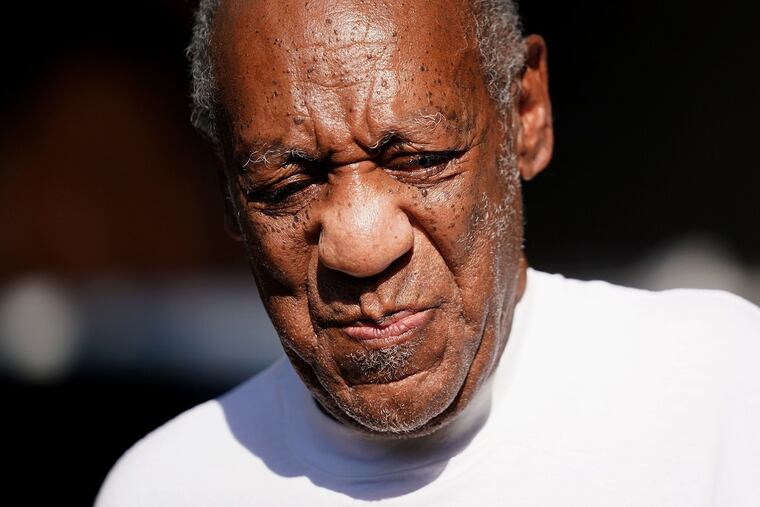U.S. Supreme Court declines to hear bid to reinstate Bill Cosby’s sex assault conviction
The high court's decision not to take up the case effectively ends a nearly two-decade legal saga for the 84-year-old comedian that briefly saw him incarcerated for a 2004 crime.

The U.S. Supreme Court on Monday declined to consider reinstating Bill Cosby’s 2018 sexual assault conviction, leaving in place the lower court ruling that freed him from prison last year and ending a nearly two-decade legal saga.
The justices announced their decision in a one-line order issued without explanation as part of a list of dozens of other cases they also declined to take up Monday. It meant that Cosby will remain a free man, despite the verdict by a Montgomery County jury that delivered the first celebrity conviction of the #MeToo era by finding him guilty of drugging and assaulting accuser Andrea Constand in 2004 at his Elkins Park home.
Cosby, in a statement issued Monday by his spokesperson, expressed his “sincere gratitude to the justices” and lashed out once again at the Montgomery County district attorney who prosecuted him, Kevin R. Steele.
“This is truly a victory for Mr. Cosby,” the comedian’s spokesperson Andrew Wyatt said. “But it shows that cheating will never get you far in life.”
Constand and her attorneys, meanwhile, called the justices’ decision “an unfortunate outcome for everyone, especially survivors of sexual assault.”
Last year, the Pennsylvania Supreme Court overturned Cosby’s conviction — more than two years into his 3- to 10-year sentence — ruling that the comedian’s prosecution violated the terms of a decade-old promise he’d struck with Steele’s predecessor, former District Attorney Bruce L. Castor Jr.
There is no written record of any such agreement. But Castor has testified that while he declined to file charges when Constand first came forward in 2005, he sought to help her with a civil suit she’d filed against Cosby by negotiating a deal that required him to sit for a deposition in that case in exchange for a promise that he could never be prosecuted. That suit eventually settled for $3.4 million.
Steele, though, has questioned whether the agreement Castor has described ever existed.
Castor didn’t tell Constand’s attorneys or his staff tasked with investigating the assault about the supposed deal at the time. And Cosby’s lawyers never pressed to put it in writing.
After Castor’s successors, Risa Vetri Ferman and Steele, reopened the case and charged Cosby in 2015, the comedian’s attorneys didn’t raise the issue until Castor reached out to them to share his recollections about the deal.
Before that, Castor gave several media interviews in which he said if he were still the DA, he’d look at charging Cosby with a crime — statements that would seem to contradict his assertions that a binding non-prosecution agreement had been put in place.
» READ MORE: Bill Cosby’s release from prison hinged on Bruce Castor’s word. But the ex-DA hasn’t always been consistent.
Citing those inconsistencies, the judge who oversaw Cosby’s 2018 trial determined that Castor was not a credible witness — an extraordinary assessment by a court of a former district attorney.
Still, the Pennsylvania Supreme Court chose to take him at his word.
Steele, in a statement Monday, called appealing that ruling “the right thing to do” but acknowledged the odds were always slim that the court would decide to hear his case.
The justices accept fewer than 1% of the petitions they receive. At least four justices on the nine-member court would have to have agreed to hear the case. Two of them, Justices Clarence Thomas and Brett Kavanaugh, confronted accusations of past sexual misconduct during their confirmation hearings.
“We appreciate the Court’s consideration,” Steele said. “My appreciation also goes to Andrea Constand. All crime victims deserve to be heard, treated with respect and be supported through their day in court. I wish her the best as she moves forward in her life.”